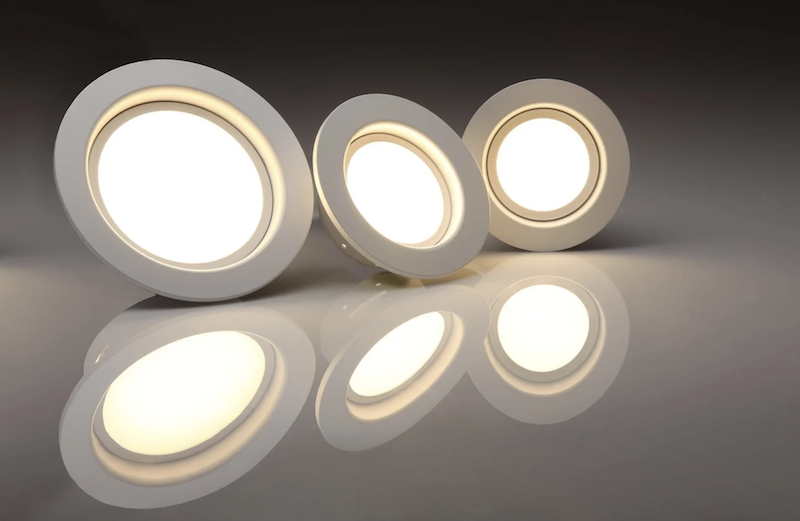The U.S. Department of Energy recently released a report on the initial performance and reliability of chromaticity sensors used for tunable LED lighting systems.
This study found that a chromaticity sensor used in the control system of a tunable lighting installation has high reliability, even under relatively harsh test conditions. The study examined the initial performance and aging characteristics of a sensor consisting of a series of six photodiodes that respond to different wavelengths to adjust illuminance, correlated color temperature (CCT), and chromaticity.
The sensor devices were exposed to a 5,000-hour accelerated stress test: one group at a continuous room temperature operating life, a second at a continuous but elevated ambient temperature of 75°C, and a third in a temperature-humidity environment of 75°C and 75% relative humidity (also known as a 7575 environment).
No abrupt failure of the sensor was found after 5,000 hours of testing, even in the relatively harsh 7575 environment. Just one parametric failure after 5,000 hours of 7575 testing was observed. Such a failure produces a change in a tunable device that would be noticeable to an observer. Light from the tunable fixture would likely be blue-shifted.
Related Stories
Legislation | Oct 10, 2022
Chicago’s updated building energy code provides incentives for smart HVAC, water appliances
The Chicago City Council recently passed the 2022 Chicago Energy Transformation Code that is intended to align with the city’s goal of reducing carbon emissions by 62% from 2017 levels by 2040.
Contractors | Oct 6, 2022
Modular construction gets boost from impacts of the pandemic
The impact of the Covid pandemic on the construction industry appears to be fueling demand for modular construction methods, especially in the western U.S. and Canada.
Fire and Life Safety | Oct 4, 2022
Fire safety considerations for cantilevered buildings
Bold cantilevered designs are prevalent today, as developers and architects strive to maximize space, views, and natural light in buildings. Cantilevered structures, however, present a host of challenges for building teams, according to José R. Rivera, PE, Associate Principal and Director of Plumbing and Fire Protection with Lilker.
Resiliency | Sep 30, 2022
Designing buildings for wildfire defensibility
Wold Architects and Engineers' Senior Planner Ryan Downs, AIA, talks about how to make structures and communities more fire-resistant.
| Sep 30, 2022
Lab-grown bricks offer potential low-carbon building material
A team of students at the University of Waterloo in Canada have developed a process to grow bricks using bacteria.
| Sep 27, 2022
New Buildings Institute released the Existing Building Decarbonization Code
New Buildings Institute (NBI) has released the Existing Building Decarbonization Code.
| Sep 22, 2022
Gainesville, Fla., ordinance requires Home Energy Score during rental inspections
The city of Gainesville, Florida was recently recognized by the U.S. Dept. of Energy for an adopted ordinance that requires rental housing to receive a Home Energy Score during rental inspections.
| Sep 19, 2022
New York City construction site inspections, enforcement found ‘inadequate’
A new report by the New York State Comptroller found that New York City construction site inspections and regulation enforcement need improvement.
| Sep 16, 2022
Fairfax County, Va., considers impactful code change to reduce flood risk
Fairfax County, Va., in the Washington, D.C., metro region is considering a major code change to reduce the risk from floods.
| Sep 13, 2022
California building codes now allow high-rise mass-timber buildings
California recently enacted new building codes that allow for high-rise mass-timber buildings to be constructed in the state.

















